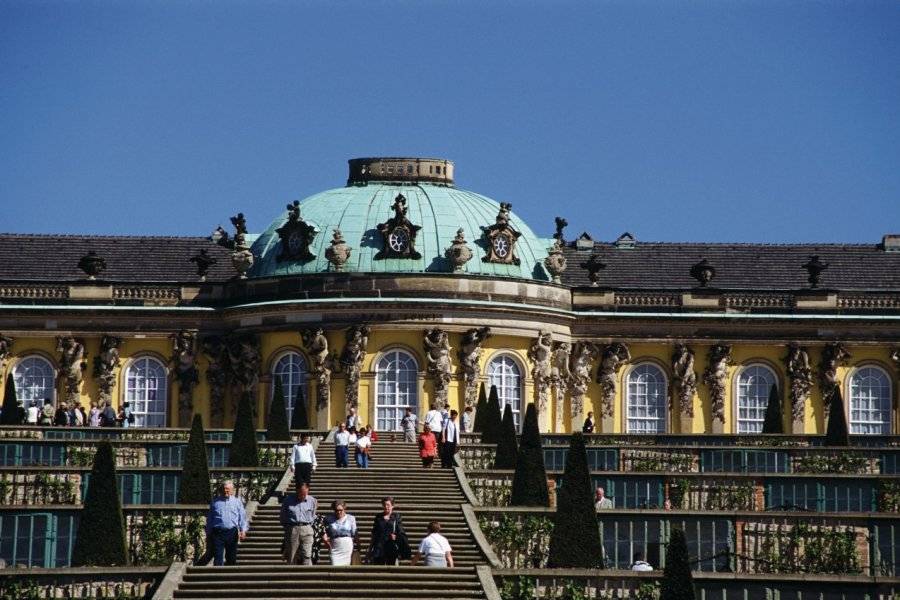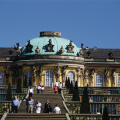Small chateau featuring a concert hall, marble room, library, study room..
This tiny château, set at the top of a beautiful terraced garden, is a prototype of the "frédéricien" rococo style. Intimate, pre-romantic, Sanssouci expresses a whole conception of the world. Built between 1745 and 1747 by architect Georg Wenseslaus von Knobelsdorff, the château's name reflects both the king's Francophilia (French was the official language of the Prussian court in the 18th century) and his state of mind (carefree living). Voltaire, among many other prestigious guests, took charge of the library and wrote important pages of his work, before he and his patron fell out forever. The interior - well worth a visit - includes some must-sees: the concert hall, the marble room where philosophical rounds were held, the library, the study room..
Adjacent to the castle, you'll find King Frederick II's disconcertingly simple tomb: a slab with the sole inscription "Friedrich der Große". Contrary to his wishes, he was buried in the Garnisonskirche, a church in the center of Potsdam that is currently being rebuilt. It was only in 1991 that his remains were returned to his beloved home. To the left of Old Fritz, the graves of his dogs. You may see potatoes on his grave: it's an amusing tradition to lay them here to thank the philosopher king for having introduced potato cultivation to Prussia, thus preventing many a famine.
Did you know? This review was written by our professional authors.
Members' reviews on CHÂTEAU DE SANSSOUCI
The ratings and reviews below reflect the subjective opinions of members and not the opinion of The Little Witty.















